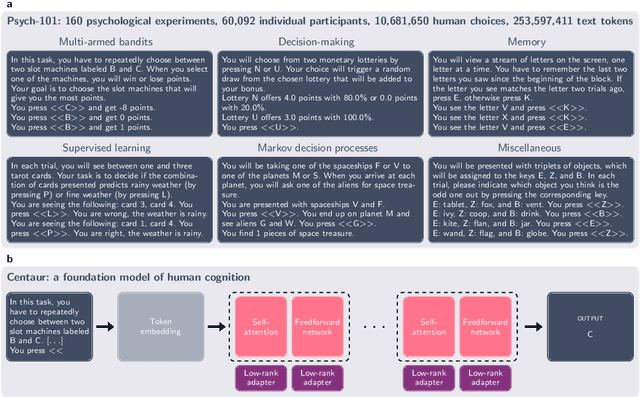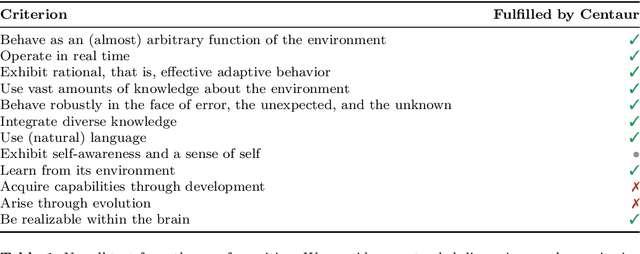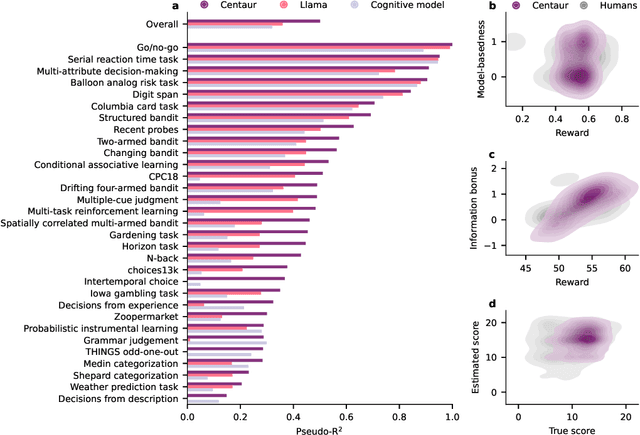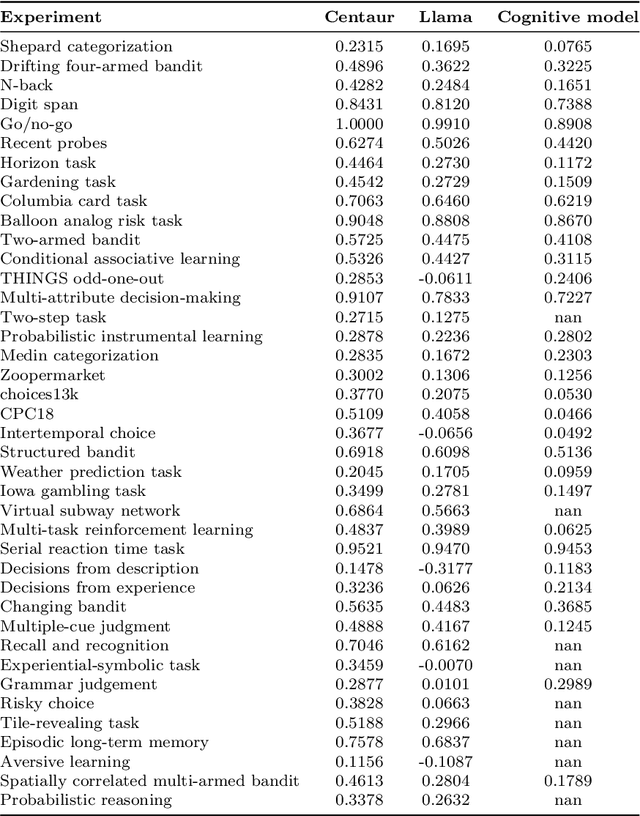Dirk Wulff
Centaur: a foundation model of human cognition
Oct 26, 2024



Abstract:Establishing a unified theory of cognition has been a major goal of psychology. While there have been previous attempts to instantiate such theories by building computational models, we currently do not have one model that captures the human mind in its entirety. Here we introduce Centaur, a computational model that can predict and simulate human behavior in any experiment expressible in natural language. We derived Centaur by finetuning a state-of-the-art language model on a novel, large-scale data set called Psych-101. Psych-101 reaches an unprecedented scale, covering trial-by-trial data from over 60,000 participants performing over 10,000,000 choices in 160 experiments. Centaur not only captures the behavior of held-out participants better than existing cognitive models, but also generalizes to new cover stories, structural task modifications, and entirely new domains. Furthermore, we find that the model's internal representations become more aligned with human neural activity after finetuning. Taken together, Centaur is the first real candidate for a unified model of human cognition. We anticipate that it will have a disruptive impact on the cognitive sciences, challenging the existing paradigm for developing computational models.
How should the advent of large language models affect the practice of science?
Dec 05, 2023Abstract:Large language models (LLMs) are being increasingly incorporated into scientific workflows. However, we have yet to fully grasp the implications of this integration. How should the advent of large language models affect the practice of science? For this opinion piece, we have invited four diverse groups of scientists to reflect on this query, sharing their perspectives and engaging in debate. Schulz et al. make the argument that working with LLMs is not fundamentally different from working with human collaborators, while Bender et al. argue that LLMs are often misused and over-hyped, and that their limitations warrant a focus on more specialized, easily interpretable tools. Marelli et al. emphasize the importance of transparent attribution and responsible use of LLMs. Finally, Botvinick and Gershman advocate that humans should retain responsibility for determining the scientific roadmap. To facilitate the discussion, the four perspectives are complemented with a response from each group. By putting these different perspectives in conversation, we aim to bring attention to important considerations within the academic community regarding the adoption of LLMs and their impact on both current and future scientific practices.
 Add to Chrome
Add to Chrome Add to Firefox
Add to Firefox Add to Edge
Add to Edge